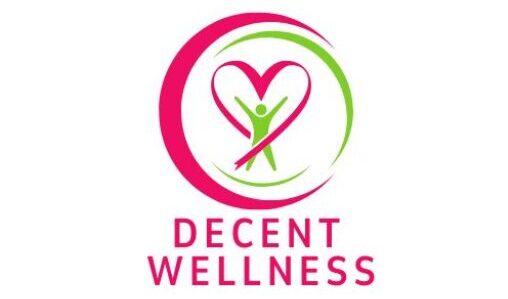These stresses as well as some means ensure that endeavors are highly effective in their connection with others in countering such challenges as those of stress and anxiety-strain, the very common problems in the pace-charged 21st century. That aside, good news is the fact that we are not suffering such stresses-alone because some ways can significantly assist in coping with them.. This guide, whether for daily stress or chronic anxiety, should assist in leveling out your life for calm, clarity, and control.
Mental Health overview
Mental health suggests how we perceive, feel, and relate to others. It affects how we do activities, make real choices, and conduct ourselves every day; for example, when we feel stressed with others or feel unhappy.
Mental well-being plays a vital role. You can tackle matters of life better when you are mentally fit. But when this specific aspect of life suffers, it can take a toll on everything, be it relations or job performance.
Anxiety and Stress Relationship
What Causes Stress?
Any demand, challenge, or obligation leads to stress. From deadlines to health scares, stress can be varied, financial, and so on.
Transition of Stress into Anxiety
Stress usually happens in emergencies; chronic stress, however, is very likely to transform into anxiety disorders. That constant state of fight-or-flight? It rewires your brain that making you feel jumpy or frightened even without obvious dangers out there.
Proven Remedies against Stress and Anxiety
Physical Exercises and Activities
Exercise increases the levels of feel-good hormones like endorphins and serotonin in the mind and also lowers blood cortisol, the primary stress hormone.
Best workout for mental clarity
- Walking or running outdoors
- Yoga and Pilates
- Resistance training
- Swimming
Time on these exercises would certainly do wonders with even just a 20-30 minute schedule.
Meditation and Mindfulness Daily Meditation Routine Just start with 5 minutes of deep breathing or guided meditation. Apps such as Headspace or Calm are good for making it easier to start.
Mindfulness Apps and Tools
Insight Timer
Buddhify
Smiling Mind
Present-focused active awareness forms habits that help reduce anxiety.
Nutrition for Mental Health

- Natural Mood Lifters
- Green Leafy Vegetables: Contain a good percentage of magnesium and folate.
- Fatty fish: Contains omega-3 fatty acids.
- Dark chocolate is full of mood uplifters.
- Berries have antioxidants and anti-inflammatory compounds.
Supplements to consider
- Magnesium
- Vitamin D
- Ashwagandha
- Omega-3
Before the consumption of any supplements at all, a person should consult a healthcare provider.
Sleep Hygiene and Rest

How Poor Sleep Affects Your Mind
When your body is not getting enough sleep, stress and anxiety multiply in number 10 times. The mind doesn’t function very well when it has an empty tank.
Creating a Bedtime Ritual
- Schedule
- Decrease screen exposure
- Use relaxing scents like lavender.
- Try herbal teas like chamomile.
Cognitive behavioral therapy is described as `one of the treatments commonly provided for children in the mental health sector. In all honesty, CBT normally involves helping kids develop skills for thinking differently and cultivating to improve their overall quality of life. CBT creates a new frame of negative thoughts as it is undoubtedly one of the most effective forms of treatment in the therapy of anxiety and stress.
Online versus In-Person CBT
While conventional therapy gives a client the experience of face to face meeting, platforms like BetterHelp or Talkspace cater to the need of people who are more into the accessible on-line therapy sessions.
Expressing Emotions Through Journaling
Writing Prompts for Mental Clarity
Today’s cause of stress for me is:
At this moment, I am grateful for:
How can I be kind to myself?
Art Therapy: Self-Expression
Without spoken words, drawing, painting, or sculpting can help release pent-up thoughts and emotions.
Creating an Enabling Environment Support
Commencing Contact with Friends and Family
Disclosing one’s inner fears becomes difficult in opening up, but the more effort it takes, the lighter the burden usually becomes.
Support Group and Mental Community
Search for support groups close to you or even those online and have quite similar experiences. Speaking to people who have the same experience might be very validating and healing.
Time Management and Setting Limits
Learn the Word No
Too many unnecessary commitments lead to additional pressure. The significant reality is to practice saying no, as it does not matter your past, present, or future state.
Efficiently Prioritize Tasks
Test out the Pomodoro Technique or Eisenhower Matrix for time management tools to help you structure your day while staving off burnout.
Digital Detox and Less Screen Time
Social Media and Mental Drain
Scrolling way too much can now make you compare and overthink in the process.. Take your time off from apps that trigger it.
- Setting Limits on the Use of Tech
- Put off any urgent notifications.
- Use app blockers
- Schedule “no screen” hours before bed.
- Breathing Technique and Grounding Exercises
- Deep Breathing Methods
- Try 4-7-8 breathing
- Inhale for 4 seconds, hold the breath for 7, and then exhale for 8 seconds.
- . Repeat several times and calm the nervous system.
Grounding Techniques for Panic
5-4-3-2-1 Look around you and name 5 things you see, 4 things you feel, 3 things you can hear, 2 things you can smell, and 1 thing you can taste.
Take an ice cube and throw cold water onto to face.
.
Alternative Therapies
Smell Aromatherapy – Essential oils from lavender, bergamot, and frankincense can all be calming.
Acupuncture and Reflexology
Ancient healing methods like acupuncture and reflexology have been used to treat and restore points that channel emotional energies.
How to Be Your Advocate
- Signs of a Pending Breakdown
- Chronic fatigue
- Isolation
- Suicidal thoughts
- Inability to normally function
When these arise, do not simply dismiss them; contact a licensed therapist at once.
Finding a Compatible Therapist
You can look at sites like Psychology Today or check out local mental health centers. Find someone who specializes in anxiety or stress management.
Prevention and Maintenance for the Long Haul
Create a Mental Health Routine
Just as your teeth need daily attention, so does your mind. This might combine anything from exercise, reflection, and sleeping to socializing.
Monitoring Progress and Tweaking the Approach
Keep a mood diary. These might help you become familiar with triggers or patterns; in response, make the necessary adjustments to your coping tools.
Conclusion
With the appropriate tools in hand, and with consistency applied, you will achieve that balance again rather quickly. Trust us; it’s fine to get help, it’s okay not to work, and mental health comes first.
FAQ
1. How do I quickly minimize stress?
Would deep breathing, a half-hour walk, or some soothing music sound good?
2. Is it possible to eradicate anxiety or at least control it?
Anxiety has excellent treatment success rates and can be controlled with lifestyle modifications and maybe also medication.
3. Which foods minimize and help anxiety?
Foods such as green vegetables, oily fish such as salmon, berries, and nuts all help in boosting brain health and reducing anxiety.
4. Can therapy be replaced by physical activity?
Exercise is powerful and turn to therapy only in case anxiety is quite severe. Both really together form a winning combo.
5. When should one consult a therapist?
If anxiety is interfering with sleep, relationships, and whether the person can function at all, that is professional help.

